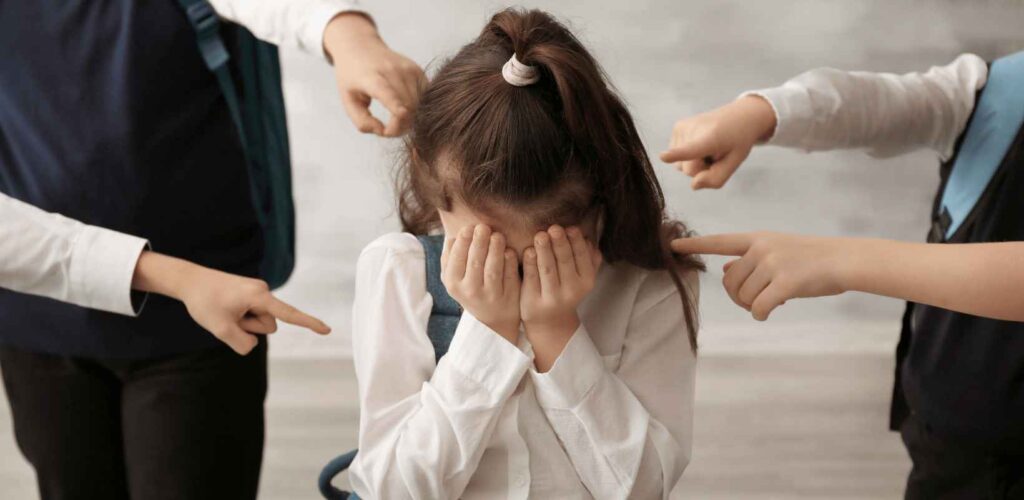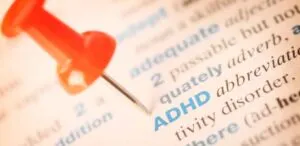Bullying is when someone repeatedly harms or intimidates another person or group. The person doing the bullying wants to have power and control over the target. Bullying can happen in different ways, like physical, verbal, psychological, or online. It can cause a lot of problems, like feeling bad about yourself, doing poorly in school or work, and even having long-term mental health issues.
It’s not a fun topic, but it’s a reality that we can’t ignore. So let’s dive right in and talk about the warning signs of bullying. Recognizing these signs is crucial in taking action against bullying. Not all kids who are bullied or who bully others ask for help. So we need to be observant and look for changes in their behavior.

Warning Signs for Children Being Bullied
There are several key indicators to look out for. Firstly, pay attention to any physical signs that your child is being bullied. Look for unexplainable injuries like bruises, cuts, or scrapes. These are red flags that indicate your child might be a victim of physical aggression from their peers. Additionally, keep an eye on their personal belongings. If they frequently come home with missing, damaged, or destroyed clothing, books, electronics, or jewelry, it might be a sign that someone is targeting them and causing harm.
When it comes to emotional signs, it’s important to observe your child’s behavior and mood. Are they suddenly more withdrawn or hesitant to engage in social activities? Are they feeling sad or anxious frequently? This behavior could indicate that they are experiencing emotional distress due to bullying. Additionally, if your child complains of frequent headaches, stomach aches, or faking illnesses could be a physical manifestation of the emotional turmoil they’re going through.
Behavioral signs can also serve as warning signs for bullying. If you notice your child suddenly skipping meals or binge eating, it could be a sign of stress and anxiety caused by bullying. Additionally, if you see any unexpected changes in their academic performance or a sudden decline in their interest in school, it could be a consequence of bullying.
It’s crucial to understand that some children who are being bullied may not show any warning signs, as they may know how to conceal their pain and suffering. However, if you notice any of these signs in your child, you must have an open and honest conversation with them. Dig deeper to understand the root of the problem and provide the support they need.
Warning Signs for Children Bullying Others
We’ve covered the signs of children being bullied, but what about those who are doing the bullying? It’s important to maintain balance. Similar to the signs of a child being bullied, there are also indicators that a child may be engaging in bullying behavior.
This environment is characterized by aggressive behavior, and you may encounter mini-bullies who enjoy exerting their power. These bullies commonly use physical aggression, such as hitting, shoving, or tripping their victims. Additionally, they may verbally attack others with insults and demeaning comments. It’s unfortunate that they resort to such behavior.
Do you ever wonder why some children bully others? It’s all about power and control. A common sign of a child who bullies is their constant need to dominate their peers, often through intimidation and making them feel inferior. Being at the top of the playground hierarchy gives them a feeling of satisfaction.
It’s important to note that bullies often lack empathy, which adds to the severity of their behavior. These individuals show little concern for the feelings of others and instead prioritize their own agenda, finding joy in causing harm to others.
So, dear readers, if you observe a child exhibiting aggressive behavior, seeking power, and lacking empathy, it’s possible that they are displaying bullying tendencies. However, there’s no need to worry. Identifying these signs is the initial step towards addressing the problem and helping them understand the consequences of their actions.
However, it’s important to maintain a lighthearted and engaging tone while addressing the issue. Being too preachy or serious may demotivate the young bullies. Humor can be an effective tool to capture their attention and encourage reflection on their actions.

Importance of Recognizing Warning Signs of Bullying
Recognizing the warning signs of bullying is crucial in addressing the problem early and preventing long-term consequences. We can protect children from the harmful effects of bullying by being watchful and attentive.
Addressing the Problem Early:
It’s important to identify warning signs of bullying so that we can intervene and provide support before the situation gets worse. By recognizing any changes in a child’s behavior or emotions, we can initiate open and honest conversations about bullying. Taking early action gives children the opportunity to regain their confidence and ensures they feel safe and supported in their environment.
Preventing Long-Term Consequences:
Bullying can have severe and lasting effects on a child’s mental, emotional, and physical well-being. Recognizing warning signs can prevent long-term consequences such as anxiety, depression, and even suicidal thoughts. It is crucial to remember that addressing the problem early can significantly reduce the impact bullying has on a child’s life.
It’s important to be aware of warning signs so we can help children who are being bullied or bullying others. We should strive to create a safe environment where children feel comfortable expressing themselves and reaching out for help.
Seeking Support and Help

When dealing with the issue of bullying, seeking help and support is essential for overcoming the challenges it presents. No one should face bullying alone; some resources and individuals can provide the necessary assistance and guidance. If you or someone you know is being bullied, consider the following options for help:
- If you are experiencing bullying, reaching out for help and support from reliable individuals who can offer guidance and aid is crucial.
- Reach out to a parent, teacher, school counselor, or mentor you trust to share your experiences and seek their support in addressing bullying.
- If the severity or persistence of the bullying calls for it, consider reporting the incidents to the appropriate authorities, such as the school administration, human resources department, or even law enforcement.
- Remember not to underestimate the power of confiding in friends and peers who can offer emotional support and understanding during challenging times of bullying.
- Seek help from support organizations and helplines. They can provide you with valuable advice and counseling services and connect you with additional resources.
- Asking for help is a brave step towards reclaiming your safety and well-being. You don’t have to face bullying alone; people are ready to support you.
Have you ever wondered why children are hesitant to ask for help?
Kids don’t tell adults for many reasons:
- Bullying can make a child feel helpless. They might try to handle the situation by themselves to regain control and may worry about being perceived as weak or a “snitch.”
- Kids may be afraid of facing backlash from the other kids who bullied them.
- Bullying can be embarrassing and degrading for kids. They may not feel comfortable telling adults what’s happening or fear being judged as weak.
- Bullied kids may feel socially isolated and feel nobody cares or understands them.
- Kids may worry about being left out by friends, which can make them vulnerable to bullying.
Novus Beginning Psychiatry: Your Path to Health and Wellness Starts Here!
We understand that navigating the complexities of mental health can feel overwhelming, but you don’t have to face it alone. At Novus Beginning Psychiatry, we’re here to support you every step of the way. Whether you’re seeking therapy, medication, or a combination of both, our compassionate professionals are dedicated to helping you find the path to a happier, healthier life.
Our highly skilled psychiatrists are experienced in a wide range of mental health conditions, including anxiety, depression, bipolar disorder, OCD, PTSD, ADHD, autism, and more. We offer evidence-based therapies that have been proven effective in helping individuals overcome their challenges. From cognitive-behavioral therapy (CBT) to couples/family therapy, we utilize the most up-to-date techniques to empower you on your healing journey.
We also recognize that medication is vital in managing certain psychological health conditions. Our team includes Dr. Nibras, who is a board-certified psychiatrist well-versed in medication management. He works closely with you to develop a comprehensive treatment plan, as we believe in the power of personalized care.
So, take the first step towards a brighter future. Contact us today to schedule an appointment. Our friendly staff is ready to assist you in finding a convenient time to meet with our dedicated professionals. Call (832)856-4718 and let us help you take charge of your mental well-being.
Medication Management For Psychiatric Wellness
At Novus Beginning Psychiatry, we’re dedicated to helping you unlock the power of effective medication management. Our team of psychiatrists has years of experience and understands the importance of finding the right balance for your mental health journey. We offer personalized and compassionate care, creating medication plans that are tailored to your unique needs. Our understanding of psychopharmacology allows us to provide the most advanced and evidence-based treatments available.
Our goal is to help you by providing the right medications to enhance your therapy outcomes, reduce your symptoms, and improve your overall well-being. We want to be your trusted partner on the path to a brighter future. Please don’t hesitate to contact us at Novus Beginning Psychiatry to experience the transformative effects of our comprehensive medication management approach.
Who is Dr. Nibras?
Dr. Sohail Nibras is a double board-certified psychiatrist in child, adolescent, and adult psychiatry. He completed his education at Saint Louis University and the American University of Integrative Science. He excels in treatments based on psychiatric care and therapeutic sessions and has experience treating dual psychiatric and substance use disorders. He is an assistant professor at the Menninger Department of Psychiatry and Behavioral Sciences at Baylor College of Medicine in Houston, Texas. He serves as an attending psychiatrist at Texas Children’s Hospital. He trains future psychiatrists and engages in scholarly research projects.
Visit us
Come and visit us at one of our locations in person or meet us via telepsychiatry/online!
We’re here to help in Texas, ready to meet you in person. If you’re unable to make it in person, don’t worry, we’re also available online, so you can meet us easily from the comfort of your own home. Whether you prefer to see us face-to-face or connect with us online, we’re here to assist you every step of the way.
Address in Sugar Land
120 Eldridge Rd Suite D, Sugar Land, TX 77478



